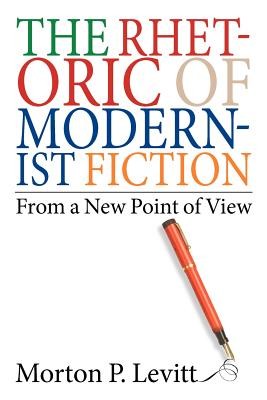
- We will send in 10–14 business days.
- Author: Morton Levitt
- Publisher: University Press of New England
- Year: 2005
- Pages: 218
- ISBN-10: 1584655003
- ISBN-13: 9781584655008
- Format: 15.7 x 22.7 x 1.4 cm, minkšti viršeliai
- Language: English
- SAVE -10% with code: EXTRA
Reviews
Description
Though it has been one of the most influential critical works of the last fifty years, Wayne Booth's The Rhetoric of Fiction has disappointed many readers in its treatment of modernism. Despite Booth's astute and influential readings of earlier novels, his system shed little light on the experiments in point of view that characterize many more recent works. Despite a revision some two decades after its first publication, the book continues to strike many readers as outdated in its choices of authors and texts. In a bold updating of that seminal work, Morton P. Levitt, long-time editor of the Journal of Modern Literature, explores the rhetoric of point of view in modernist and post-modernist novels, offering new insights into some of the greatest works of the last century. As the editor of one of the most important journals in the field, Levitt has been uniquely situated to absorb and reflect critically upon the most significant scholarship on modernist fiction. In a series of subtle, persuasive readings, he demonstrates that the rejection of omniscience is one of the defining characteristics of modernist and post-modernist novels. From Joyce and Woolf to Philip Roth, Don DeLillo, and José Saramago, Levitt discusses a wide range of texts in readings that will be accessible to students and invaluable to scholars.
EXTRA 10 % discount with code: EXTRA
The promotion ends in 23d.03:03:33
The discount code is valid when purchasing from 10 €. Discounts do not stack.
- Author: Morton Levitt
- Publisher: University Press of New England
- Year: 2005
- Pages: 218
- ISBN-10: 1584655003
- ISBN-13: 9781584655008
- Format: 15.7 x 22.7 x 1.4 cm, minkšti viršeliai
- Language: English English
Though it has been one of the most influential critical works of the last fifty years, Wayne Booth's The Rhetoric of Fiction has disappointed many readers in its treatment of modernism. Despite Booth's astute and influential readings of earlier novels, his system shed little light on the experiments in point of view that characterize many more recent works. Despite a revision some two decades after its first publication, the book continues to strike many readers as outdated in its choices of authors and texts. In a bold updating of that seminal work, Morton P. Levitt, long-time editor of the Journal of Modern Literature, explores the rhetoric of point of view in modernist and post-modernist novels, offering new insights into some of the greatest works of the last century. As the editor of one of the most important journals in the field, Levitt has been uniquely situated to absorb and reflect critically upon the most significant scholarship on modernist fiction. In a series of subtle, persuasive readings, he demonstrates that the rejection of omniscience is one of the defining characteristics of modernist and post-modernist novels. From Joyce and Woolf to Philip Roth, Don DeLillo, and José Saramago, Levitt discusses a wide range of texts in readings that will be accessible to students and invaluable to scholars.


Reviews